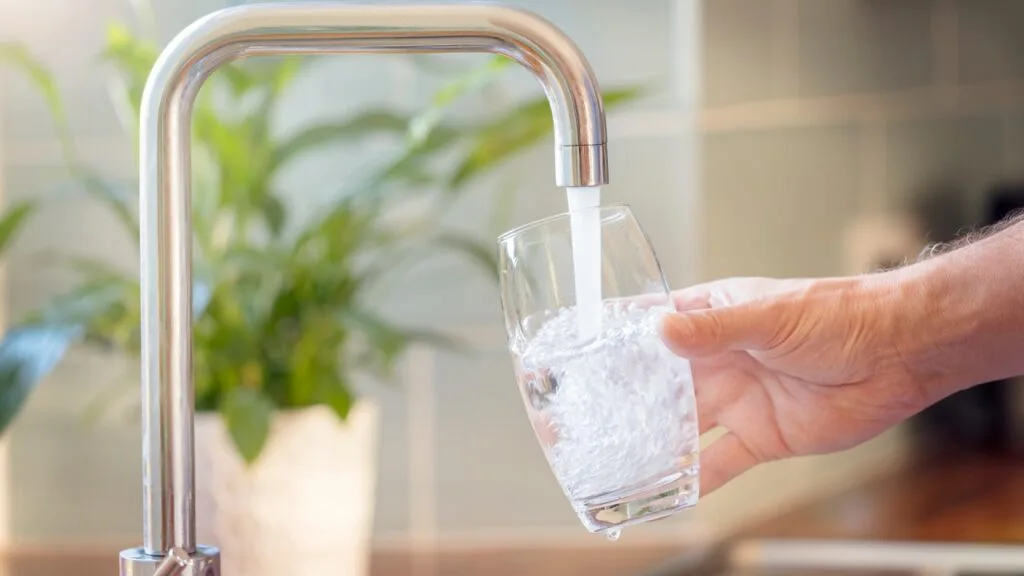When it comes to the pursuit of weight loss, many individuals often feel disheartened by stagnant numbers on the scale, despite their best efforts. However, one factor that can contribute to sudden fluctuations in weight is water retention. Losing water weight can be an effective way to see immediate results, which may not only boost motivation but also provide a clearer picture of actual fat loss over time. In this article, we will explore the causes and methods for losing water weight effectively, in a manner that is safe and sustainable.

Understanding Water Weight
What is Water Weight?
Water weight refers to the temporary weight gain caused by excess fluid accumulation in the body. This phenomenon is often noticeable after meals that are high in salt, carbohydrates, or when experiencing hormonal changes, among other factors.
Causes of Water Retention
- Dietary Factors: A high intake of sodium can lead to increased water retention as your body retains more fluid to balance out the excess salt. Carbohydrates also have a similar effect—when consumed in larger amounts, the body stores more glycogen, which binds to water.
- Hormonal Changes: Fluctuations in hormones, particularly during menstruation for women, can result in increased water weight. Hormones like estrogen and progesterone can greatly affect fluid retention.
- Physical Activity: Periods of inactivity can lead to swelling in the legs and feet, while exercise can actually help reduce water retention. However, after intense workouts, the body may initially retain water as part of the recovery process.
- Certain Medications: Some medications can lead to increased fluid retention as a side effect. It’s important to consult with a healthcare professional if you suspect this may be a cause.
Effects of Water Weight
While carrying excess water weight can be disheartening, it’s crucial to understand that it’s not necessarily indicative of fat gain. Losing water weight can improve physical comfort, enhance athletic performance, and lead to a significant but temporary reduction on the scale. However, it’s important to keep in mind that focusing solely on water weight loss can mislead you into thinking you’ve lost fat.
Strategies for Losing Water Weight
1. Adjust Your Diet
Limit Sodium Intake
To combat water retention, it’s crucial to monitor sodium intake. Aim for a balanced diet low in processed foods, which often contain hidden salts. Use herbs and spices to flavor your meals instead of salt, and always check nutritional labels to be aware of sodium content.
Increase Potassium-Rich Foods
Potassium helps balance sodium levels in the body and can promote the excretion of excess water. Foods rich in potassium include bananas, spinach, sweet potatoes, avocados, and beans.
Stay Hydrated
It may sound counterintuitive, but drinking more water can actually help reduce water weight. When you’re dehydrated, your body tends to retain more fluid. By maintaining adequate hydration, you can encourage your body to release excess water. Aim for at least 8-10 cups of water each day, or more if you’re engaging in vigorous exercise.
2. Increase Physical Activity
Regular Exercise
Engaging in regular physical activity not only burns calories but also promotes circulation and lymphatic drainage, both of which can help reduce water retention. Aim for a combination of cardiovascular exercises (like walking, running, or swimming) and strength training to maximize benefits.
Incorporate Movement Into Your Day
If you have a sedentary lifestyle, try to incorporate movement throughout your day. Simple actions such as taking the stairs, walking around during breaks, or stretching can make a significant difference.
3. Consider Natural Diuretics
Incorporating natural diuretics into your diet may also help with water retention. Foods like cucumber, watermelon, and celery have natural diuretic properties and can aid in reducing fluid accumulation.
4. Manage Stress Levels
Stress can trigger hormonal changes that lead to water retention. Engaging in stress-reduction techniques such as meditation, yoga, or deep breathing exercises can help regulate these hormones and minimize fluid retention.
5. Monitor Carbohydrate Intake
As previously mentioned, carbohydrates can lead to increased glycogen storage, which binds water. Consider reducing simple carbohydrates and replacing them with complex carbohydrates, such as whole grains and legumes, that provide more sustained energy without contributing significantly to water retention.
6. Get Adequate Sleep
Quality sleep is essential for overall health, and inadequate rest can negatively affect hormonal balance, leading to increased water retention. Aim for 7-9 hours of quality sleep per night to support your body during the weight loss process.
7. Consult a Healthcare Professional
If you continue to struggle with water retention despite making dietary and lifestyle changes, it may be time to consult a healthcare professional. They can help identify underlying causes, rule out any serious health issues, and suggest further personalized strategies for managing water retention.
Short-Term vs. Long-Term Weight Loss
When you lose water weight, it often results in rapid changes on the scale. However, it’s important to approach this with a long-term perspective. While losing water weight can be beneficial for motivation, lasting weight loss should focus on reducing body fat through sustainable lifestyle changes.
Sustainable Approaches for Long-Term Success
- Balanced Nutrition: Focus on a well-rounded diet rich in whole foods, healthy fats, lean proteins, and fiber. This approach will not only help manage water retention but also aid in fat loss and overall wellness.
- Consistency: Establishing a consistent routine, whether it’s your diet, exercise, or sleep schedule, is crucial for long-term success.
- Monitor Progress: Instead of fixating solely on the scale, consider other markers of progress such as body measurements, energy levels, mood, and overall well-being.
- Set Realistic Goals: Aim for gradual weight loss of about 1-2 pounds per week. Quick fixes and drastic approaches often lead to regaining weight.
Conclusion
Losing water weight can serve as a helpful short-term strategy for achieving immediate results and enhancing motivation. However, it is essential to prioritize sustainable practices that promote overall health and lasting weight loss. By adjusting your dietary habits, increasing physical activity, managing stress, ensuring adequate sleep, and seeking professional advice when necessary, you can effectively reduce water weight and move toward your long-term health and wellness goals. Remember, while the scale is a useful tool, it should not define your journey. Focus on building healthy habits that will lead to lasting success.


